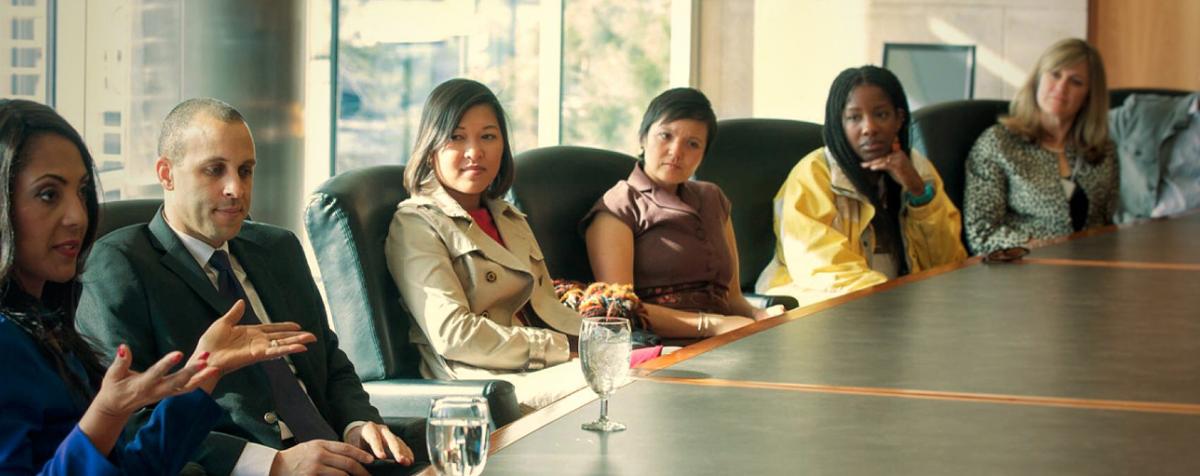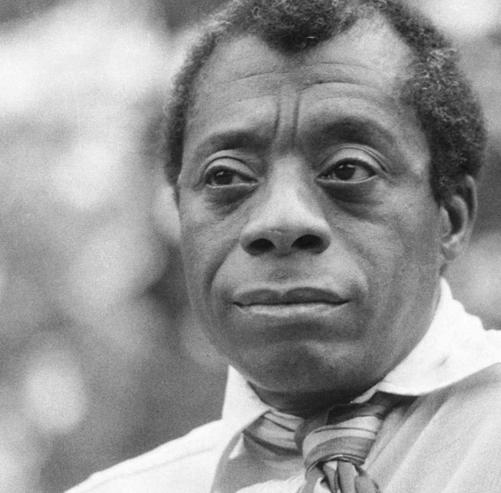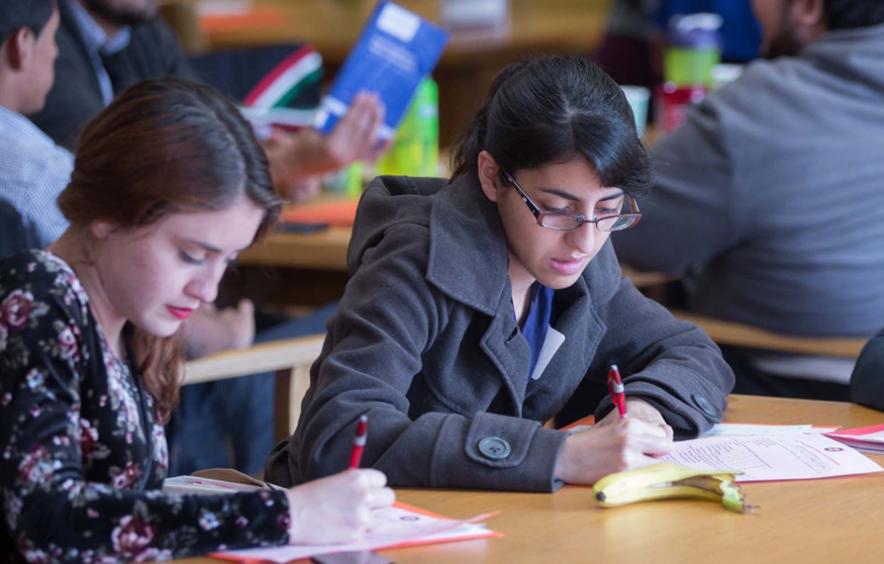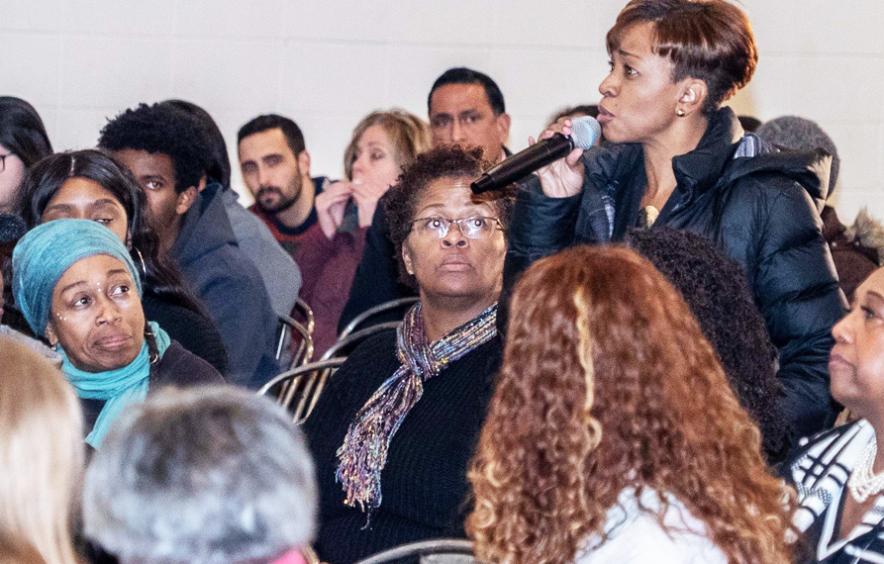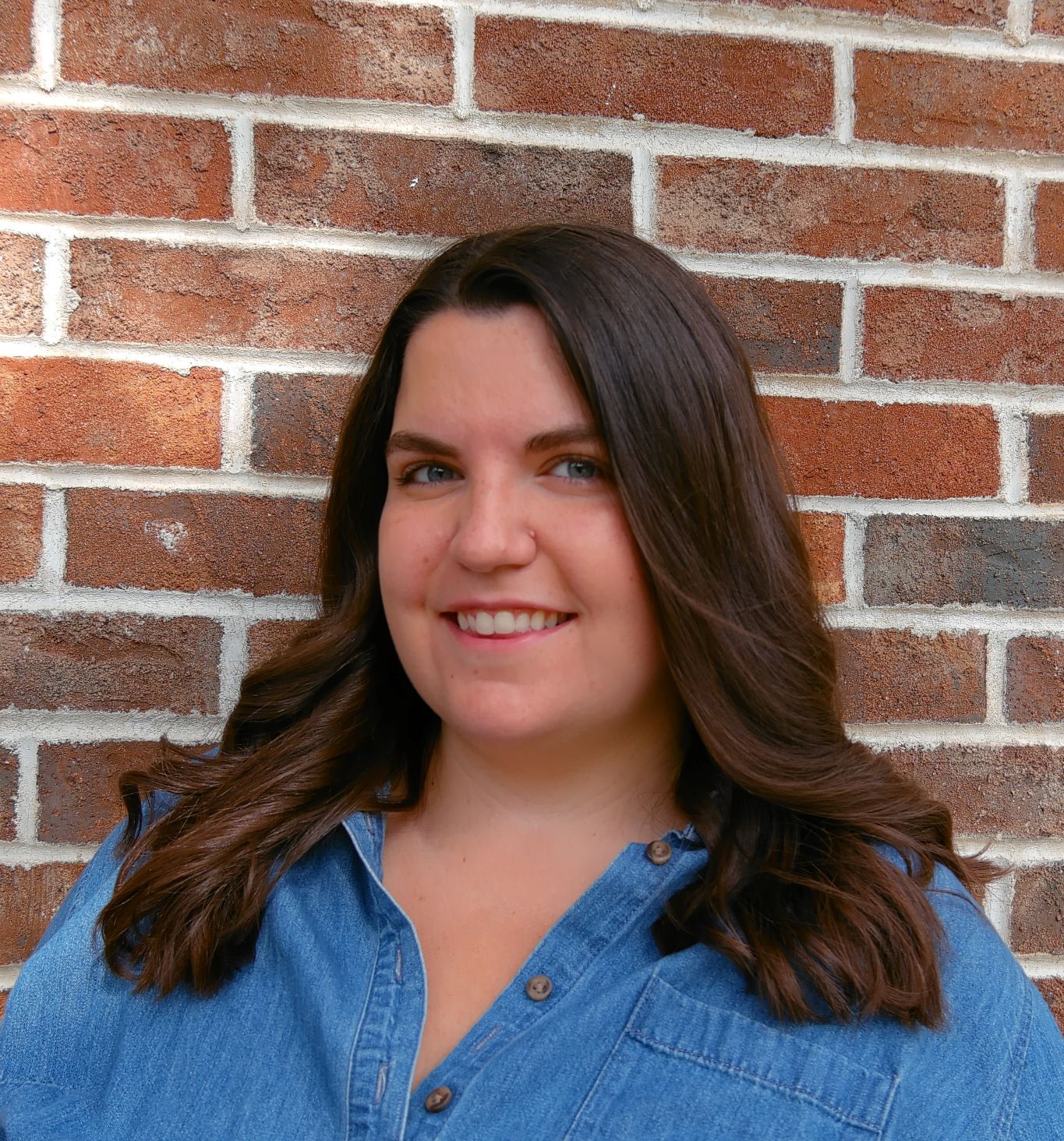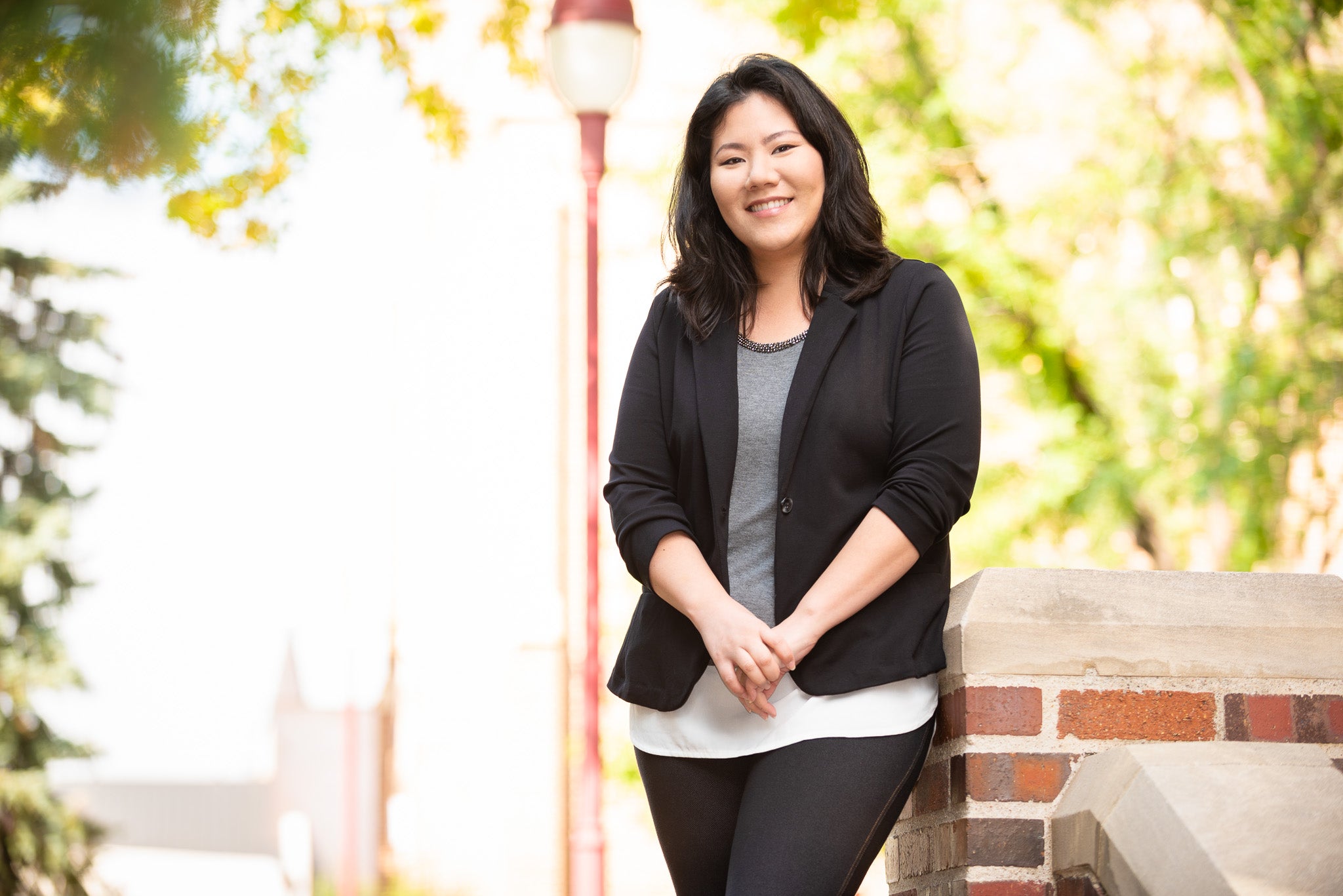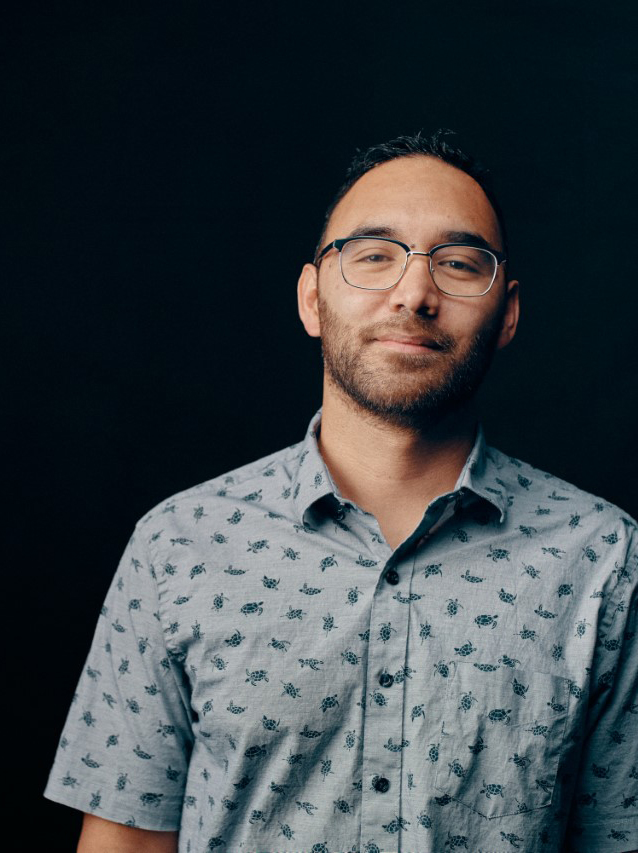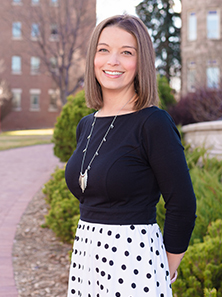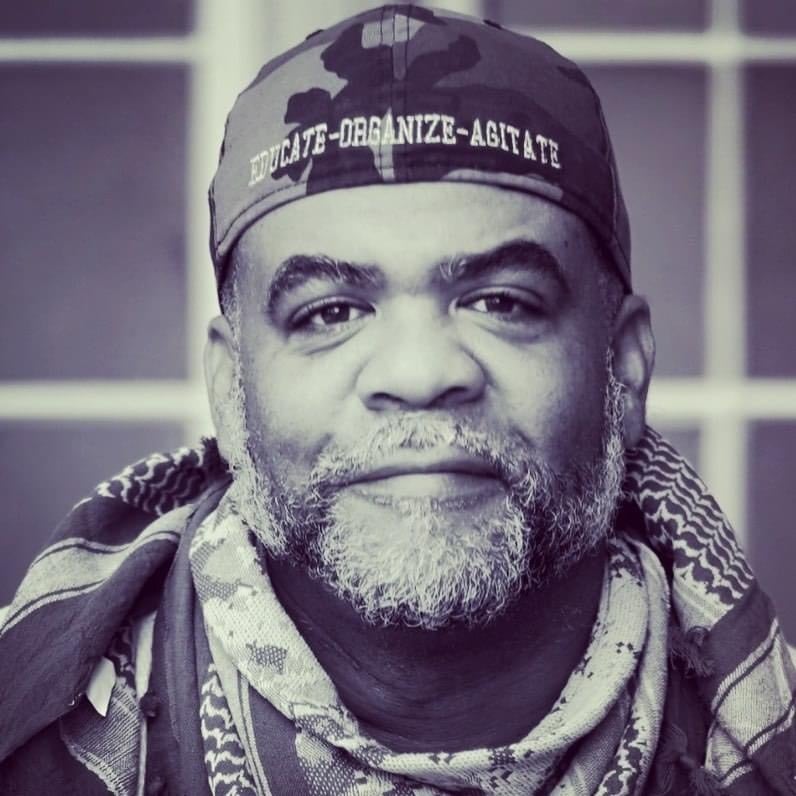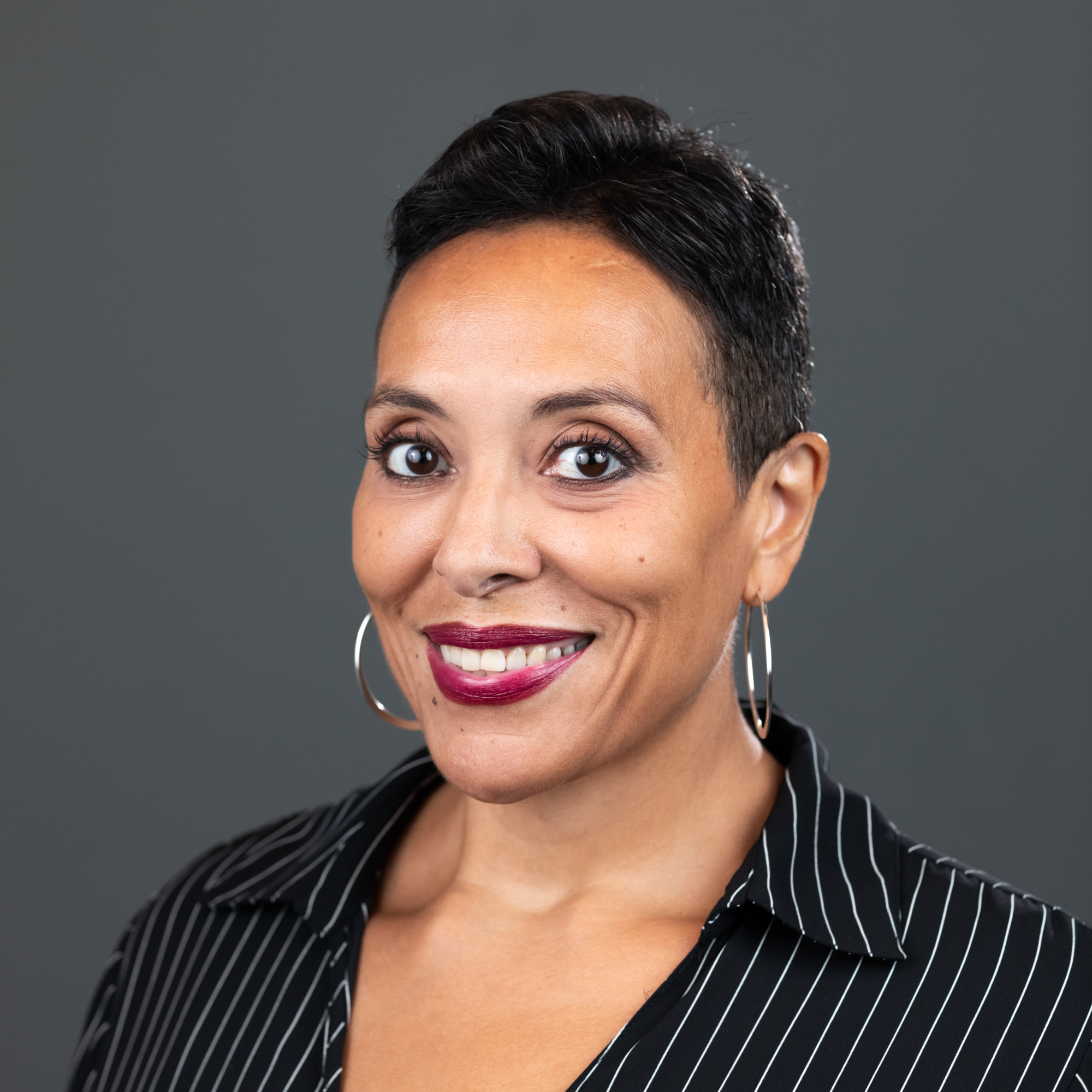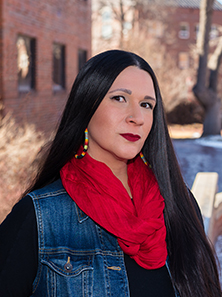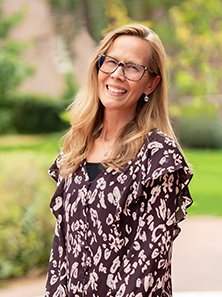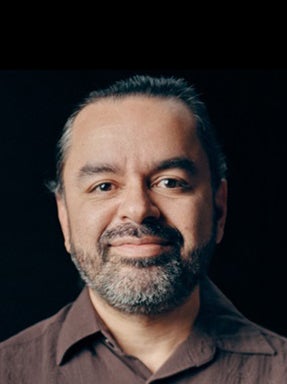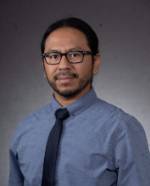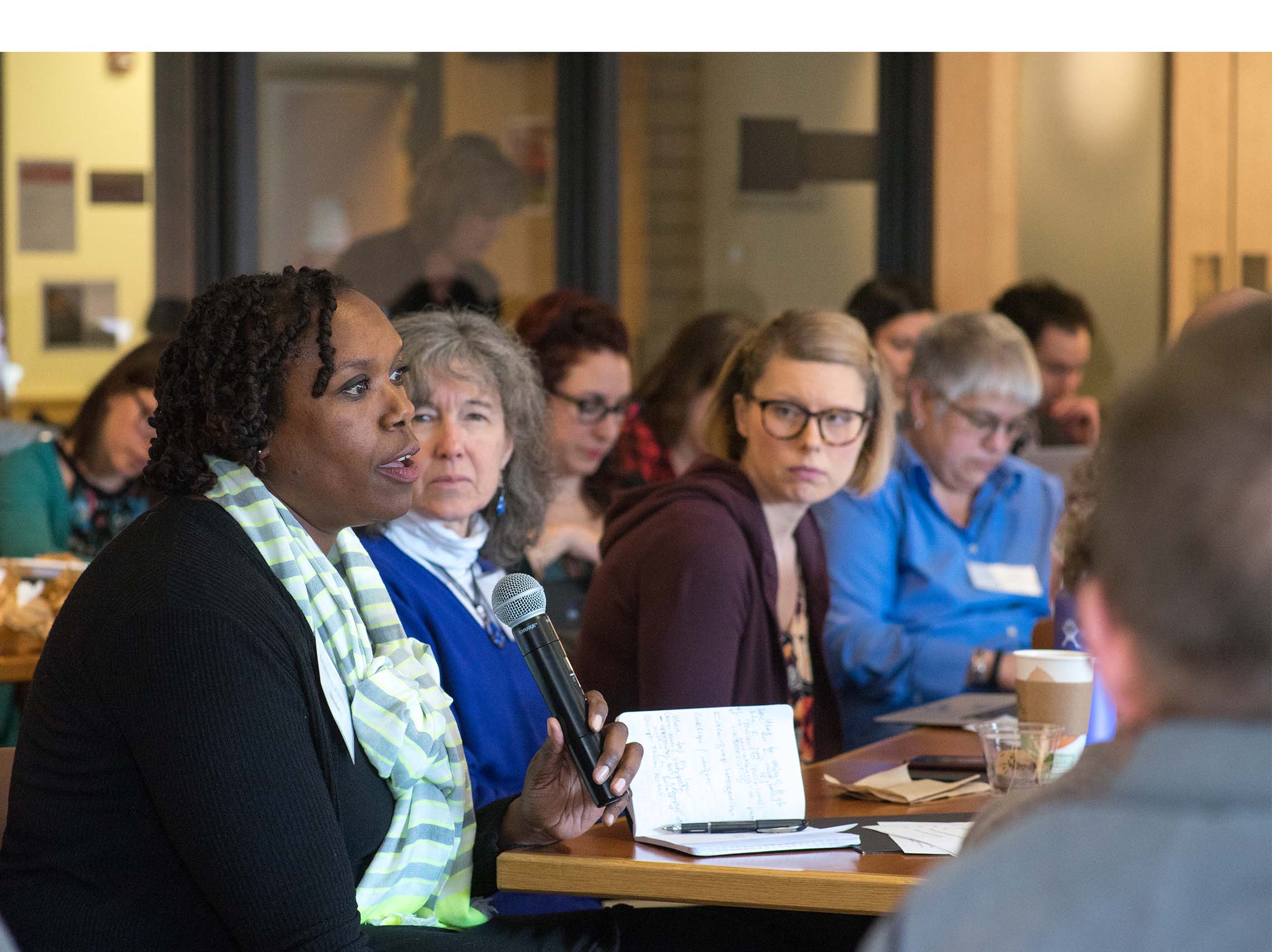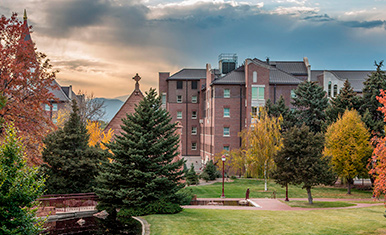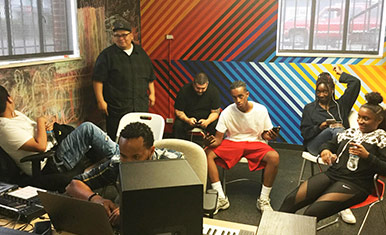About IRISE
Our Mission
IRISE is designed to provide opportunities and support for faculty and students to engage in the development of cutting edge interdisciplinary research on issues of inequality, social justice, and inclusivity through community engaged projects in health and education.
We develop, support, and implement academic programs and activities that promote the advancement of historically underrepresented populations at DU.
Staff
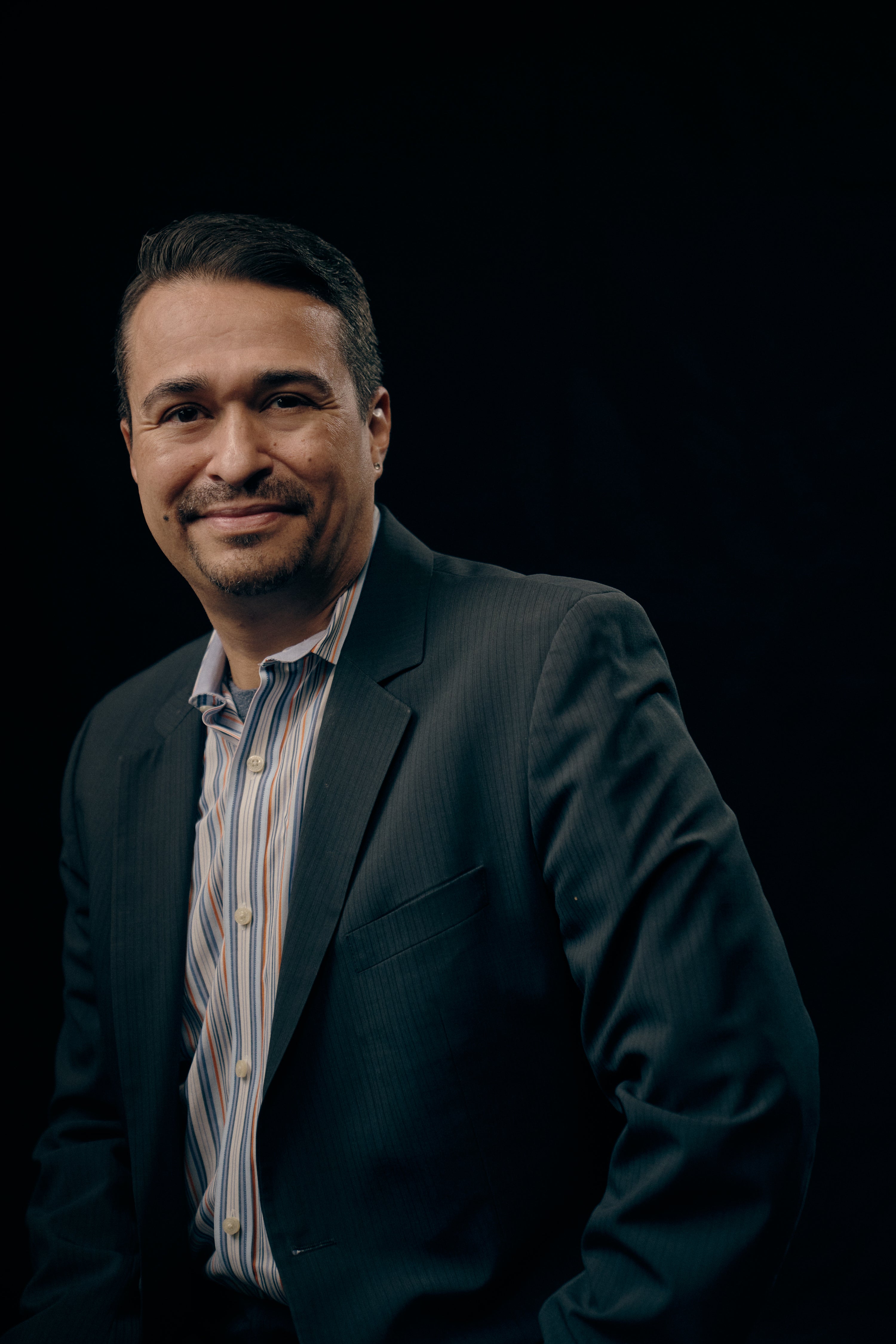
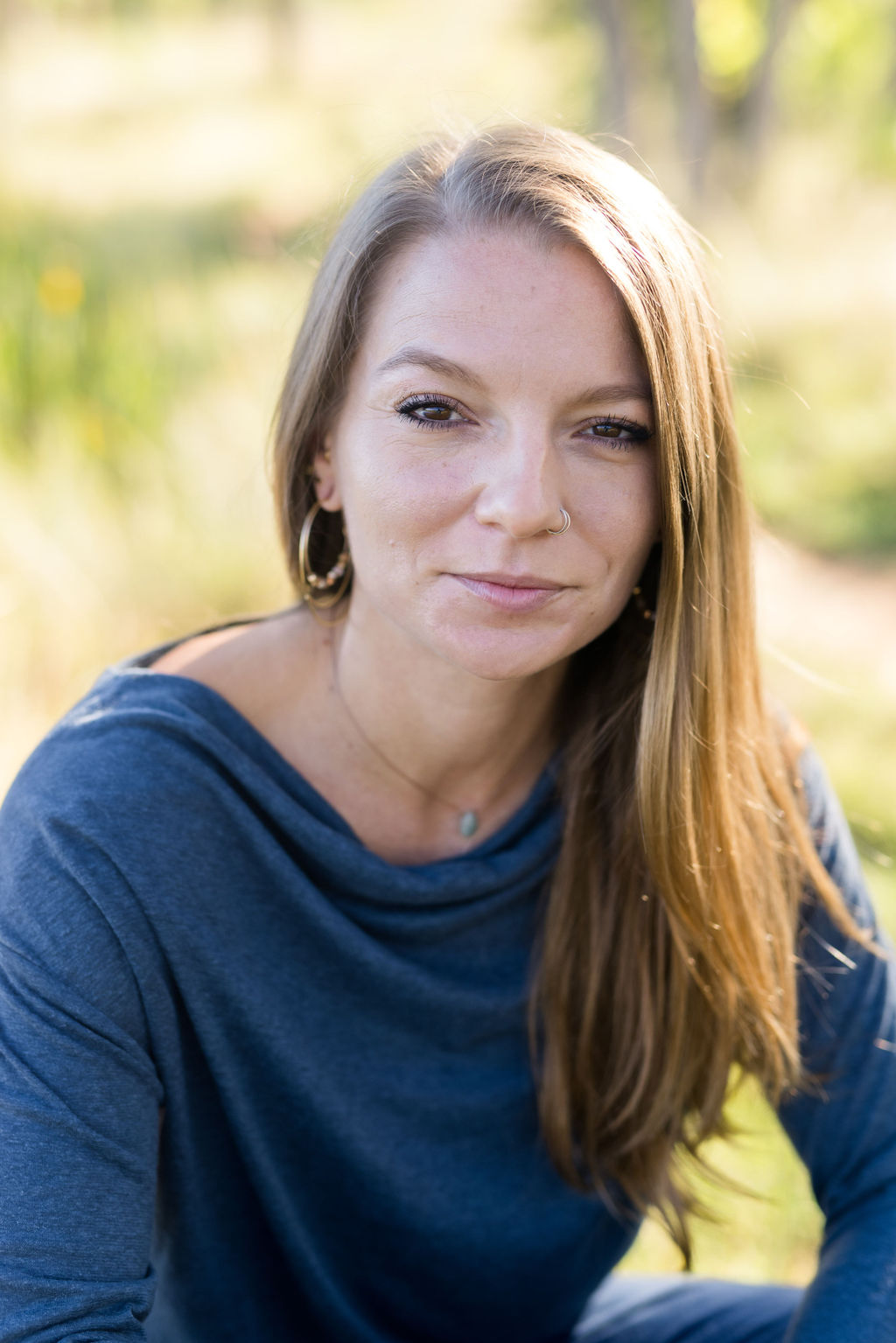
Postdoctoral Fellows
-
Fatoumata Bah, PhD
Dr. Binta Bah joins the University of Denver community as a Post-Doctoral Fellow of Educational Justice in Urban School Districts with IRISE. While originally from Guinea, West Africa, she has called the state of Delaware “home” for the last 22 years. Following in the footsteps of three older siblings, she attended the University of Delaware where she earned a bachelor’s degree in Women’s Studies along with two minors in Psychology and Anthropology. Dr. Bah continued on at the University of Delaware, earning a master’s degree in Human Development and Family Studies. She earned a PhD in Teaching and Learning, with a specialization in Multicultural and Equity Studies in Education at The(ee) Ohio State University in 2020.
Guided by a central focus on the naming and theorizing of the specificity of anti-blackness, her research utilizes Afro-pessimism, Critical Race Theory, and Cultural Studies to examine and address anti-blackness in educational policy and programmatic reform initiatives. Her dissertation research, Freedom! Freedom! Where are You? A Critical Examination of Educational Reform Policy and Programmatic Initiatives, epitomizes this approach to scholarly inquiry as it illuminates how systems of power operate within and outside of educational contexts, which systematically subject Black students to psychic and material harm and violence. Looking ahead, Dr. Bah is invested in exploring how Black young students deploy fugitivity in oppressive sites of schooling, particularly how they engage in negotiate survival and resistance.
Dr. Bah has spent the last two years as a Consortium for Faculty Diversity Post- Doctoral Fellow in the Education Department at Muhlenberg College. In this role she developed and taught Educational Psychology and the History and Politics of American Education. Students in her classroom can expect to engage in interdisciplinary approaches to exploring and contextualizing broader socio-political organization as ways to understand education and schooling.
In her upcoming role as an IRISE fellow, Dr. Bah is excited to be a part of a cohort family as she hopes to challenge herself as scholar activist. She hopes to deepen her research and writing skills and be open to new professional development opportunities such as grant writing and community engaged research.
-
Katie Grote, PhD
Katie Grote (she/her) is a geographer with a special focus on environmental impact assessment procedures and the representation of Indigenous communities. Katie has completed her doctoral dissertation, “Indigenous Community Exclusion in U.S. Environmental Impact Assessments,” and will graduate from the University of Kansas in May 2023. Her research aims to understand the power imbalance and racial injustice embedded in environmental policy and practice, ultimately contributing to a growing body of research focused on how to improve minority representation and involvement in environmental management.
Katie is thrilled to be an incoming post-doctoral research fellow at IRISE. Her aim is to continue developing her research skills and examining topics of racial and climate (in)justice, with a particular focus on community-based research. As a research fellow, she hopes to continue the work from her doctoral dissertation while also contributing to ongoing projects at IRISE.
Katie’s available publications can be accessed through the following DOIs: https://doi.org/10.1177/26349825221123571 and https://doi.org/10.1080/2201473X.2021.1999008
-
Tyler Han, PhD
Dr. Tyler Han is a critical social work scholar. Her research aims to make visible and critique manifestations of power and oppression as they relate to race, punishment, and social control with the goal of transforming power relations to advance equity and promote social change. Specifically, she aims to center the voices of those impacted by the criminal punishment system while connecting their experiences to systemic inequities and the broader social context. Carceral institutions harm individuals, families, and communities and perpetuate social, racial, economic, and political inequities. Dr. Han is drawn to work with incarcerated and formerly incarcerated people because they are among the most invisible in society. Prisons are a historical and contemporary expression of inequitable social conditions that intersect with race, class, and gender to create another axis of oppression. She believes that the way we treat those relegated to the margins of society and the treatment we as individuals and society accept for those people reflect our collective humanity. Dr. Han is grateful to have found community with IRISE and the Critical Race and Ethnic Studies program while remaining connected to mentors and colleagues from the Graduate School of Social Work, and I am excited about building relationships with others as we engage in the work ahead.
Visiting Faculty and Community Scholars
-
Ean Thomas Tafoya
Ean is active in Denver Public Affairs, Colorado Public Policy, and Federal Environmental Policy. He began his career as an educator and went on to work for three branches of local government, worked at three levels of American government, run for Denver City Council, and has directed many local and state political races. Currently, he serves as the Colorado State Director for GreenLatinos. Ean has received recognition for his work from the Denver Regional Council of Governments, the Denver Regional Air Quality Council, named a River Hero by the National River Network, and serves as the elected Co-Chair of the Colorado Environmental Justice Action Task Force. He serves on the board of many local non-profits including Headwaters Protectors, Denver Inter-Neighborhood Cooperation, & Historic Denver. He loves to dance whether it be at a concert or in politics! As Mr. Denver, a local music DJ and radio host, he uses the media to uplift locals in the community. Follow Ean @believeEan on all platforms.
Ean is a water protector that holds a B.A. in Political Science with a Minor in Native American Studies, a Water Studies Certificate, and Early Childhood Education Certificate from Metropolitan State University of Denver as well as a Horticultural Therapy Certificate for Colorado State University.
-
Olga González
Olga has been a dedicated nonprofit professional and community organizer for the past 28 years. She is the Executive Director of Cultivando, a Latinx-serving organization that focuses on developing the leadership, advocacy and capacity of the Spanish-speaking community. As the first woman of color to lead Cultivando in its 24-year history, she has expanded the organization’s reach beyond Adams county and supported Latinx communities and organizations statewide. Olga is also the CEO of O.G. Consulting Services where she provides equity facilitation and coaching services to businesses and nonprofits nationally and throughout the state of Colorado.
Olga has earned several awards for her work in the areas of inclusiveness, equity, and social justice, including the Mayor’s Award for Outstanding Denver Citizen Committed to Fighting Against Hate and the Award for Excellence in the Promotion of Health Equity from the Public Health in the Rockies Conference. Last year, she was awarded the Soul of Leadership (SOL) Award by the Latino Community Foundation of Colorado. Recently, she was a featured TedXMileHigh Speaker where she shared her insights on the importance of promotoras in community-led, transformational work.
Olga holds a dual bachelor’s degree in psychology and Chicano studies from Scripps College in Claremont, CA. She also earned a Master’s Degree in Nonprofit Management from Regis University as a Colorado Trust Fellow. She is a graduate of the Transformative Leadership for Change fellowship, the Executive Directors of Color program at the Denver Foundation and she is currently a Bonfils Stanton Foundation Livingston Fellow. Olga is the proud mother of three amazing children who, along with her husband Malik Robinson, is raising to be the next generation of courageous and visionary social justice warriors.
-
Gerardo Muñoz
Writer, poet, doctoral student, and educator Gerardo A. Muñoz is the 2021 Colorado Teacher of the Year. For over twenty years, he promoted equity, student voice, and professional solidarity on the local, state, and national levels. As a middle and high school Social Studies teacher at the Denver Center for International Studies at Baker, Gerardo has been instrumental in the school’s development over most of the last twenty years. He established the school’s first Debate Team, Drama Club, Latinx Student Alliance, Black Student Alliance and middle school girls' and boys’ soccer program in his early years at DCIS. Since 2018, he has sponsored and coached his school’s chapter of the Student Board of Education and the 5280 Challenge program, through the Denver Public Schools Student Voice and Leadership program, which works to address challenges and opportunities in the school and local community through community organizing and social justice-focused policy development.
As a leader for most of his career, Gerardo has represented teacher, student, and community interests as a member of a number of efforts. He served twice as a Senior Team Lead from 2014-2018, and currently serves as Student Voice Lead, facilitating student-led, teacher-powered work at DCIS. In addition, he has served on the Collaborative School Committees (CSC) for two schools, works to support fellow educators on the Instructional Leadership team, and has served on his school’s Equity Team. On a national level, he was one of four teachers assembled to share their perspectives and represent their communities to Secretary of Education Dr. Miguel A. Cardona.
In community, Gerardo works tirelessly to amplify and share experiences of educators of color and from marginalized perspectives. Since 2016, he has been Executive Producer of TooDope Productions, and co-hosted the podcast Too Dope Teachers and a Mic with Kevin Adams, which attempts to “remix the conversation on race, power, and education.” Podcast guests include Dr. Bettina L. Love, author Luís J. Rodriguez, Secretary of Education Miguel Cardona, National Teacher of the Year Juliana Urturbey, Dr. Gholdy Muhammad, rapper and filmmaker Boots Riley, and singer-songwriter Taina Asili. He also produces The Exit Interview podcast and hosts his own podcast Habitually Disruptive. An avid runner, Gerardo completed three marathon-distance runs in the summer of 2020 to raise funds and awareness in the wake of the killing of George Floyd by police, raising money for Black Lives Matter 5280, the Growhaus, and the Heart and Hands Center.
Gerardo has been the recipient of numerous awards, locally and nationally, including The Colorado Education Association’s 2021 Golden Apple Award, The Take’s 2021 Black History Malcolm X Award, 2021 California Casualty Excellence in Teaching prize, Grogan Family Fund Award, and was honored as a seven-time Distinguished Teacher, most recently this year. Gerardo was nominated as National History Teacher of the Year in 2021, and his writings have appeared in Learning for Justice, Truth for Teachers and other publications. He is currently at work on his first book.
A Chicano from Denver’s East Side and graduate of Denver Public Schools, He is proud of his eclectic set of interests and accomplishments. He is a proud husband to a strong and brilliant woman and father to an amazing daughter.
